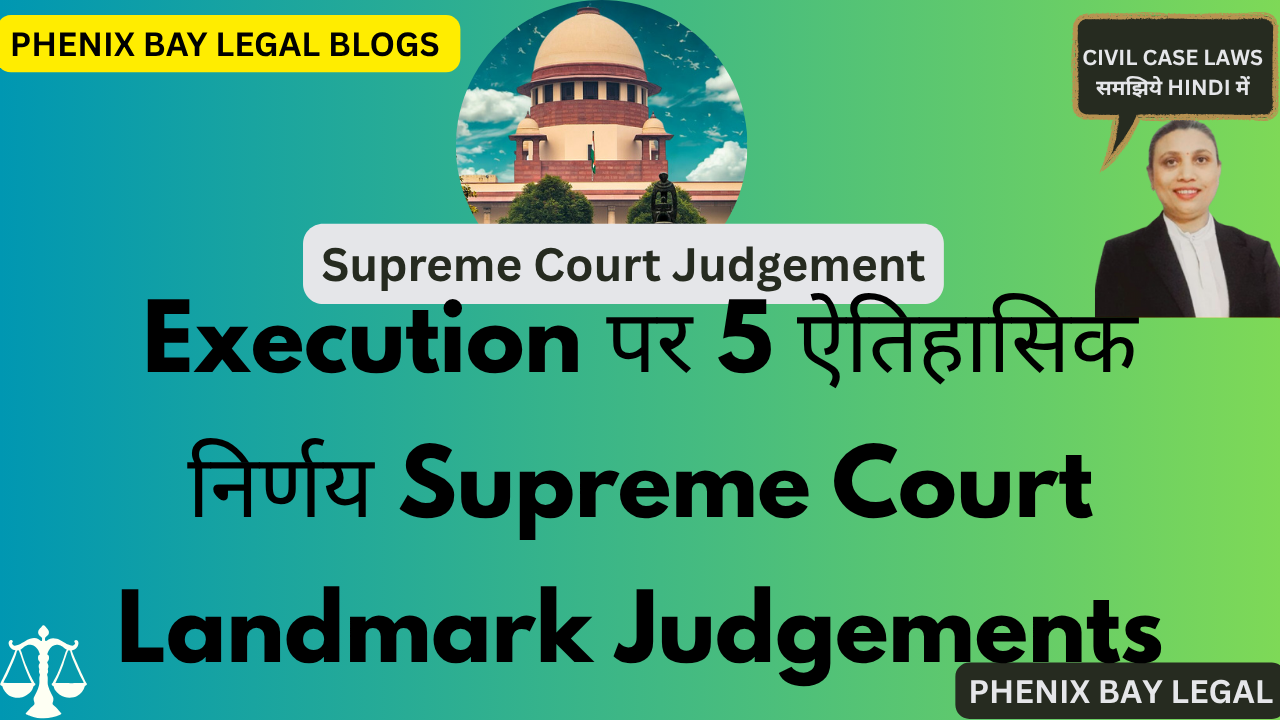
Top 5 Landmark Judgments on Execution of Decrees
Top 5 Landmark Judgments on Execution of Decrees under CPC (Order 21) Explained with Detailed Case Analysis, Citations, and Legal Principles
- Vasudev Dhanjibhai Modi v. Rajabhai Abdul Rehman & Ors.
Citation: AIR 1970 SC 1475
Bench: J.C. Shah and K.S. Hegde, JJ.
Facts
In this case, a decree was passed by the trial court, and during execution, the judgment-debtor raised the objection that the decree was without jurisdiction, and hence not enforceable.
Legal Issue
Can an executing court examine the correctness or legality of a decree passed by a competent court?
Judgment
The Supreme Court held that an executing court cannot go behind the decree. Its sole function is to execute the decree as it stands. If a decree is passed by a court having jurisdiction, it must be obeyed — even if the judgment-debtor believes it is erroneous.
However, the only exception is if the decree is a nullity, i.e., passed by a court completely lacking jurisdiction, in which case it can be challenged even at the execution stage.
Legal Principles Established
- An executing court cannot question the validity of a decree unless it is ex facie a nullity.
- Even wrong or erroneous decrees must be executed if passed by a competent court.
Why This Case Matters
This judgment upholds the finality of decrees and prevents re-litigation during the execution stage. It clarifies the limited scope of Order 21, Rule 1–3, and reinforces the idea that execution is not a second trial.
- Topanmal Chhotamal v. Kundomal Gangaram & Ors.
Citation: AIR 1960 SC 388
Bench: B.P. Sinha and A.K. Sarkar, JJ.
Facts
A decree was passed directing the defendant to deliver specific goods. Instead of enforcing the decree in its original form, the decree-holder moved the execution court seeking monetary compensation for the goods.
Legal Issue
Can the nature of a decree be changed during execution — for example, from specific relief to money recovery?
Judgment
The Court held that the execution must conform to the terms of the decree. If the decree directed the delivery of goods, then the executing court must implement it as such — not as a money decree.
The court cannot alter, amend, or substitute the mode of execution based on convenience.
Legal Principles Established
- Decree must be executed in its original form, not altered during enforcement.
- The remedy lies in seeking modification or clarification from the court that passed the decree.
Why This Case Matters
This decision enforces the sanctity of decree-specific execution under Order 21 Rule 30 and Rule 31, especially in cases involving specific performance.
- M.C. Mahajan v. Indian Oil Corporation
Citation: (1991) 1 SCC 50
Bench: M.N. Venkatachaliah, J.
Facts
The petitioner challenged the execution of a money decree passed against him and raised multiple technical objections to delay the process.
The decree-holder, Indian Oil Corporation, claimed that such objections were merely delay tactics, and the decree should be enforced without unnecessary hindrance.
❓ Legal Issue
Can procedural objections be used to frustrate or delay the execution of a valid decree?
Judgment
The Supreme Court ruled that execution proceedings should not be treated as fresh litigation. The court strongly discouraged technical challenges which aim only to prolong the execution and deny justice.
It emphasized that courts must take a practical and expeditious approach while executing a decree.
Legal Principles Established
- Obstructionist tactics during execution are to be discouraged.
- Executing courts should ensure that justice is not delayed under the guise of procedural compliance.
Why This Case Matters
The ruling is a practical guide for execution courts dealing with habitual defaulters or judgment-debtors using Order 21 Rules 97–101 to delay proceedings.
- Hungerford Investment Trust Ltd. v. Haridas Mundhra & Ors.
Citation: AIR 1972 SC 1826
Bench: A.N. Grover and I.D. Dua, JJ.
Facts
The trial court passed a complex decree involving delivery of shares and monetary relief. When the matter went for execution, the judgment-debtor claimed the decree was too vague to be enforced.
Legal Issue
Can a vague or ambiguous decree be executed by the execution court?
Judgment
The Court ruled that if a decree is capable of being reasonably interpreted, then the execution must proceed. The executing court has the authority to interpret the decree to make it workable.
It need not dismiss the application solely on the ground that the decree is not specific in every detail.
Legal Principles Established
- Decrees must be interpreted liberally to give effect to the intent of the judgment.
- Minor ambiguities should not prevent execution.
Why This Case Matters
It provides guidance on how to handle imperfectly drafted decrees. Crucial for real-world litigation where judgments are not always clear-cut.
- Salem Advocate Bar Association v. Union of India
Citation: (2005) 6 SCC 344
Bench: Y.K. Sabharwal and B.N. Agrawal, JJ.
Facts
This case challenged the 2002 amendments to CPC, especially the procedural changes introduced for execution proceedings, timelines, and adjournments.
The petitioners argued that the procedural restrictions under the amended CPC could adversely affect litigants.
Legal Issue
Are the amendments to Order 21 CPC valid and constitutional, especially those that tighten execution timelines?
Judgment
The Supreme Court upheld the amendments and emphasized that expeditious execution is an essential part of the justice system. The reforms were aimed at reducing the backlog and making the civil process more efficient.
The judgment also endorsed case-flow management systems, reduction in adjournments, and strict timelines during execution.
Legal Principles Established
- Speedy execution is part of the right to access justice.
- Courts must enforce decrees without delay under the amended Order 21.
- Judiciary must support procedural reforms to ensure effective implementation.
Why This Case Matters
This is a modern execution law milestone, setting the tone for future reforms and efficient decree enforcement.
Conclusion: Key Takeaways for Law Students & Litigators
- Execution is not a trial de novo; executing courts cannot go behind the decree.
- The form of decree dictates the form of execution — be it monetary, specific performance, or possession.
- Technical objections should not hinder justice, and courts must interpret decrees liberally when needed.
- Post-2002 amendments make execution faster, accountable, and transparent.
More >>

Jyoti Sharma vs. Vishnu Goyal & Anr. 2025 INSC 1099
This was a long running legal battle between a landlord and her tenants over a shop. The landlord, Jyoti Sharma, wanted her shop back for two main reasons: The tenants had stopped paying rent. She needed the shop to expand her family's business (her bonafide need).
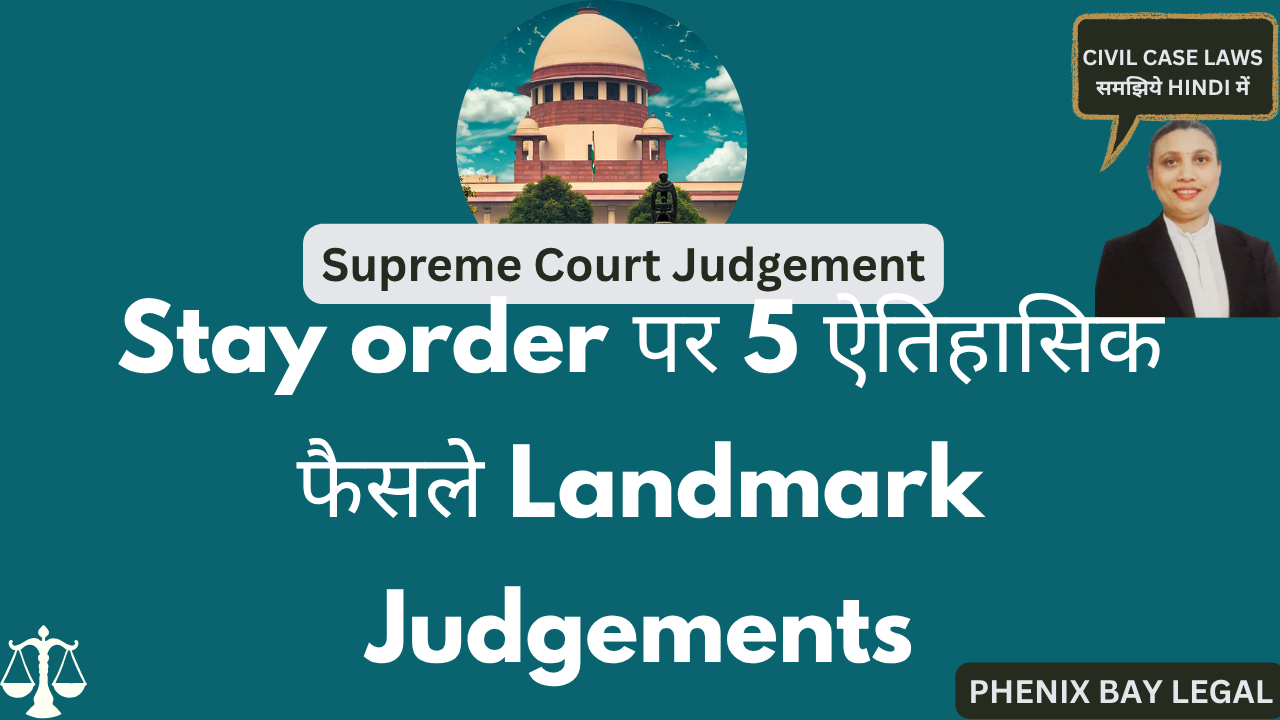
Landmark Judgement on Injunction
In civil, commercial, or even family disputes. But when is a simple injunction suit enough? When do you need to add a declaration of title? And how do courts balance urgency vs evidence in interim relief?
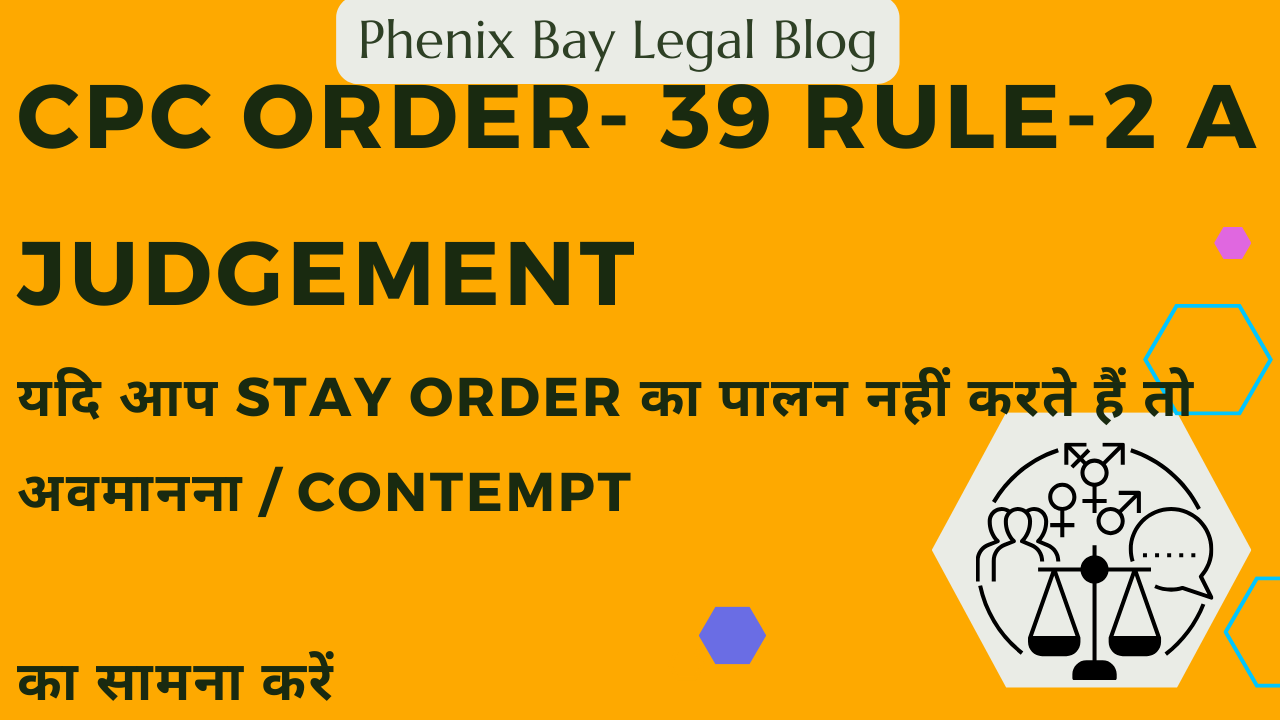
Case Analysis: Stay Order Violation and Contempt of Court by Supreme Court of India
Giving an undertaking to the court is equivalent to an order of injunction—any violation invites contempt proceedings.Injunction orders remain valid until formally vacated by a court—violation before vacation can lead to punishment.
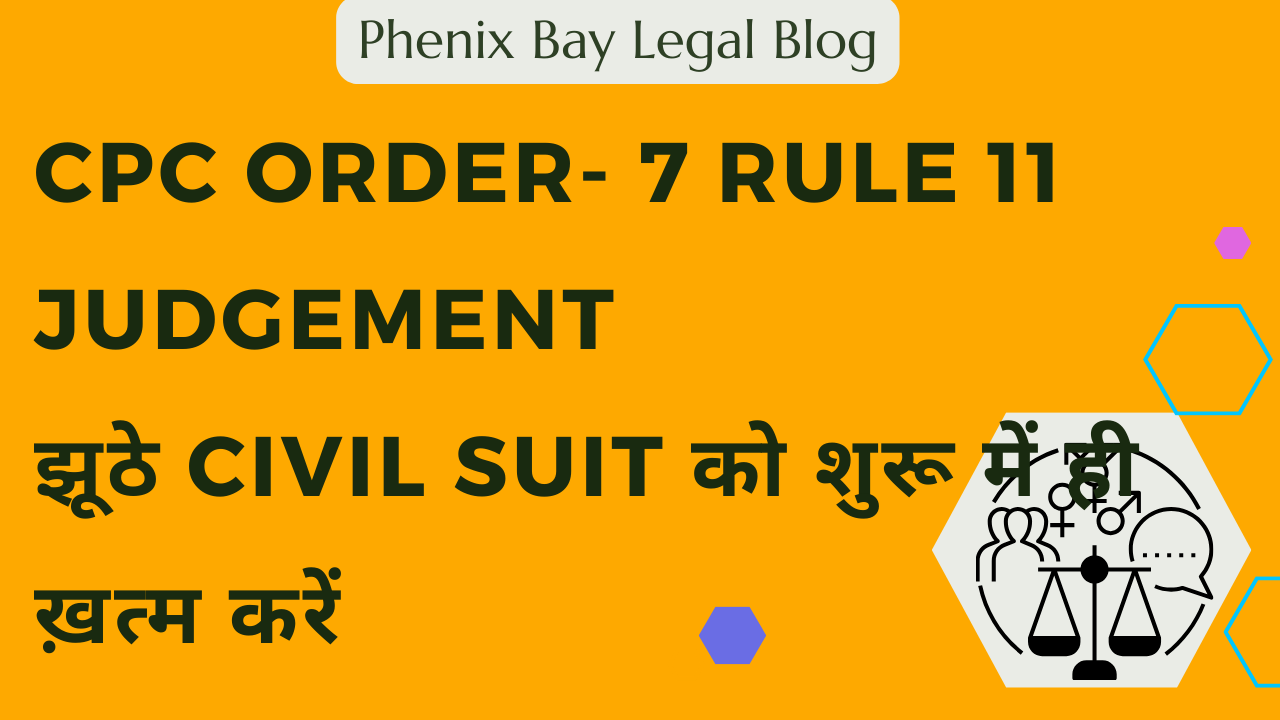
Order 7 Rule 11 of CPC Explanation in Land Mark Judgement
The Sopan Sukhdeo Sable judgment is a landmark ruling that reinforces Order 7 Rule 11 of CPC as a safeguard against frivolous and legally untenable claims. It highlights the importance of examining only the plaint’s contents to decide whether a suit should be dismissed at the threshold.
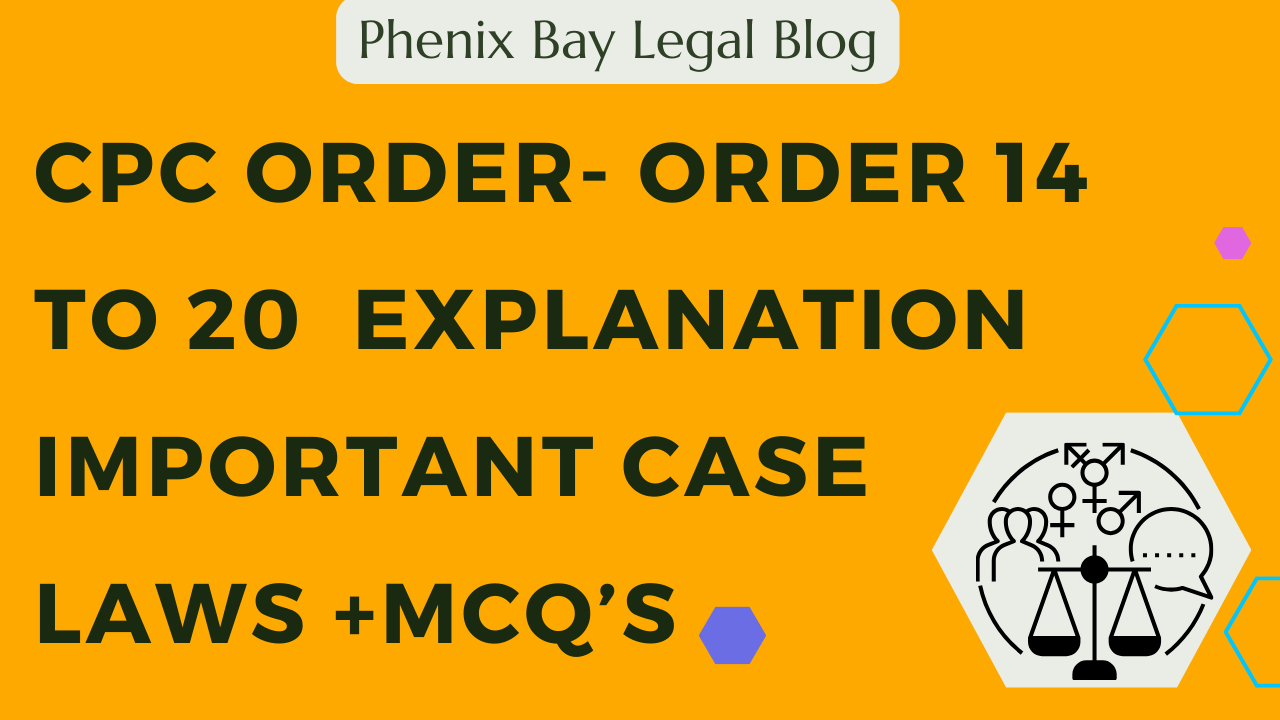
CPC Order- Order 14 to 20 Explanation IMPORTANT CASE LAWS +MCQ’S for Judiciary Exam Preparation
CPC Order- Order 14 to 20 Explanation IMPORTANT CASE LAWS +MCQ’S for Judiciary Exam Preparation
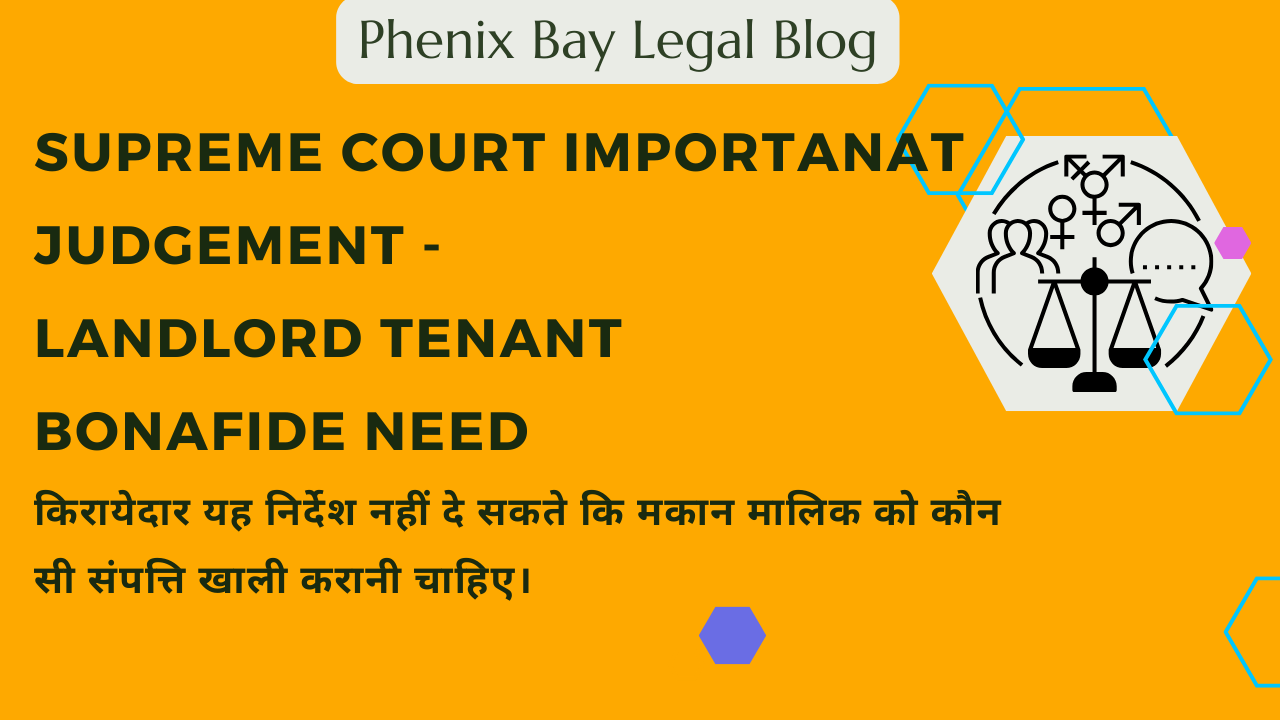
Supreme Court ImportanatJudgement - Landlord Tenant Bonafide need
This case involves a dispute over eviction of a tenant based on the bona fide need of the landlord. The Supreme Court ruled in favor of the landlord, reversing the High Court's decision. Below is a detailed breakdown of the judgment with relevant legal principles, precedents, and reasoning.